In 21st century America, unanimity is a rare thing. The popular narrative runs that we are a more polarized, more divided country than ever before. Most days, it seems like it’s true. Even something like the COVID-19 pandemic, which had brought people together in solidarity, broke down almost immediately along partisan lines—the Left demanding extended lockdowns, the Right clamoring for reopening, and each side accusing the other of being heartless and selfish.
With the murder of George Floyd, captured in horrific detail on video for all to see, it looked as if we as a country might be experiencing one of those rare moments of solidarity, the kind not truly felt since the terrorist attacks on September 11, 2001. It’s twenty years later, and today we rightly focus on the mistakes of the past, opportunistic abuses of power like the Patriot Act and the Iraq War, but at the time, for a little while anyway, there were no Democrats or Republicans. We were all on the same page.
When the video emerged of a Minneapolis police officer kneeling on the neck of an unarmed, handcuffed man begging for mercy, there was a similar sense of outrage and hurt. It cut across race, class, and political lines. Everyone was in agreement: what had happened was an atrocity, and it had to stop. Even law and order types who are wont to give police the benefit of the doubt were unanimous in their condemnation. Again, we were all on the same page; the status quo is unacceptable and something must be done.
Then the riots started.
I want to be clear here: when I say “riots” I am not talking about the protestors demonstrating in pursuit of justice for Floyd. Such protests are absolutely justified and an integral part of citizens’ ability to hold government accountable for its actions. Indeed, the protests should continue until those responsible for Floyd’s death are brought to justice, and the police have demonstrated a serious commitment to institutional reform. No, when I say riots, I’m talking about the people stealing from private businesses, destroying private property, and assaulting innocent bystanders.
There is much debate about who is actually perpetrating these actions. Are they legitimate protestors and members of the community? Are they anti-capitalists like Antifa just looking for an excuse to burn things? Are they white supremacists undercover trying to make minorities look bad? The truth will emerge in time, and it’s likely that all three are partially responsible, as are the members of the police force who have been caught on film going after journalists and other non-violent protestors.
The point I want to make is this: overnight the conversation changed from one focused on police reform to a debate about the ethics of riots.
Again, the discussion broke down along partisan lines. Again, anyone with a dissenting or slightly nuanced position was demonized as either a bigot or an anarchist. You either had to be 100 percent in support of the riots, or 100 percent against the protestors. There was no room for middle ground, and just like that, we were divided again.
George Floyd’s death is a tragedy, as are all the deaths caused by police brutality and an unchecked use of force. But there is another tragedy that gets a lot less attention, and this is it: even when we all agree on something, we have become incapable of working together to fix it.
As a professional libertarian, I’ve spent nearly a decade writing about the need for justice reform and the problems of state-sponsored violence against minorities. I’ve been part of fragile left-right coalitions dedicated to setting aside our ideological divides to pursue the common good. I’ve seen firsthand how difficult it is to make progress, how careful you have to be with your word choices, how wary both sides are that they might be taken advantage of by the other. And I want to say that I understand and sympathize with the frustration that we’re now seeing bubble over. People feel unheard, like they have no choice but to resort to violence, like this is their last stand to put a stop to what should have never been allowed in the first place. I get it, I really do. But now I’m watching all that hard work of coalition and consensus building wiped out in a fiery blaze, as former partners in reform retreat to the safety of their respective tribes, their stereotypes about the other side confirmed.
I truly hope that some good can come out of all this, that we can put aside our differences and work together to change a system that just doesn’t work, and that in the process of not working claims innocent lives. But I fear that we’ve missed our opportunity. We’ve squandered our moment of unanimity and solidarity, and we’re back to where we started: the belief that Republicans are all racists and Democrats are all thugs.
It has to stop, just like police brutality has to stop, just like arson and vandalism has to stop. We have to start trying to build something better rather than just tearing everything down. We have to start listening to each other, trying to understand why diverse people feel the way they do, instead of just writing them off with an easy cliché. We have to condemn immorality wherever we see it, not just when it’s directed at our tribe. This is the only way we’re going to make the world a better, fairer, freer, and more peaceful place. Fighting each other just leads to more violence.

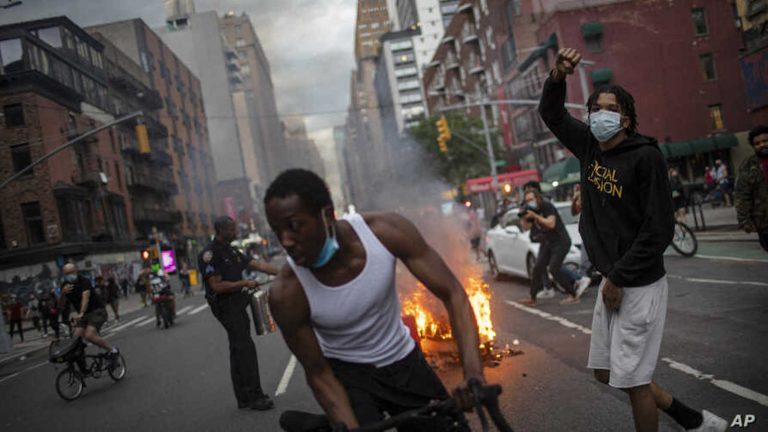
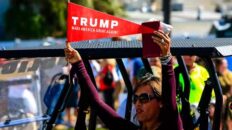


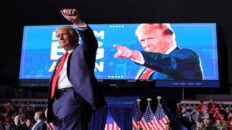
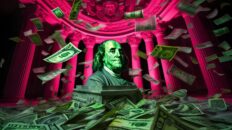
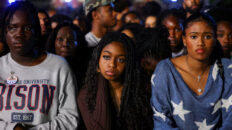

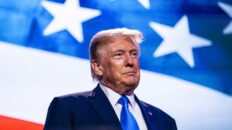
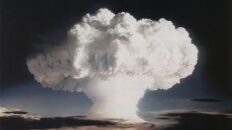


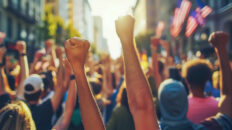
Add comment